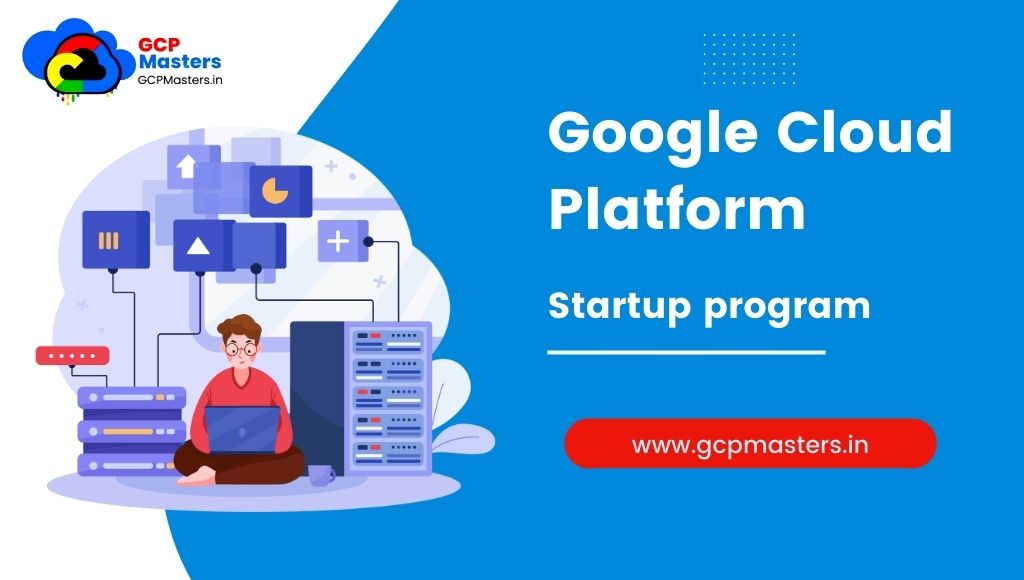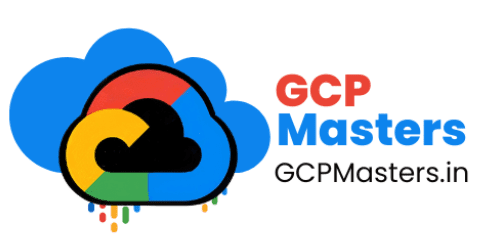Everything You Need to Know About the Google Cloud Platform Startup Program

In the quick-moving digital age, startups are always looking for ways to use technology to grow faster. Cloud computing has become a key player, giving startups the flexibility, scalability, and cost savings they need to innovate quickly and remain competitive. Google Cloud Platform (GCP) is one of the leading cloud service providers, featuring a special program for startups. This program provides various advantages, such as funding, technical assistance, and access to a wide range of tools and services that can help startups succeed.
Why Cloud Computing is Critical for Startups
Cloud computing has become the backbone of modern business, providing startups with the infrastructure necessary to build, deploy, and scale their products and services efficiently. Startups, often operating on limited budgets and tight timelines, need solutions that can be deployed quickly without the heavy upfront costs associated with traditional IT infrastructure.
GCP, as a leading cloud provider, offers startups the ability to operate with the same level of efficiency and security as large enterprises. By using cloud services, startups can avoid the high costs of hardware and maintenance, gain access to cutting-edge technology, and focus their resources on innovation rather than infrastructure.
What is the Google Cloud Platform Startup Program?
The Google Cloud Platform Startup Program is an initiative by Google that aims to support startups by providing them with access to GCP’s world-class cloud infrastructure, tools, and expertise. This program is designed to help startups at various stages of their journey, from early-stage development to scaling and beyond.
Startups accepted into the program receive cloud credits, which can be used to access a wide range of Google Cloud services, from computing power and storage to advanced analytics and machine learning tools. Additionally, the program offers mentorship from Google engineers, networking opportunities, and access to Google’s extensive partner ecosystem, which can be invaluable for startups looking to grow and expand.
Eligibility
To be eligible for the Google Cloud Platform Startup Program, startups typically need to meet certain criteria:
- Stage of Development: The program is primarily designed for early-stage startups that are either in the development phase or beginning to scale their operations.
- Funding: Startups that have received some form of early-stage funding, such as seed funding or Series A, are often eligible. However, the exact requirements may vary.
- Industry and Use Case: While GCP supports startups across various industries, those that can clearly articulate how they plan to use GCP’s services to drive innovation and growth are more likely to be accepted.
Joining the Google Cloud Platform Startup Program offers a wealth of benefits that can significantly impact a startup’s growth trajectory. These benefits are designed to address the common challenges startups face and provide them with the tools they need to succeed.
- Cloud Credits: Financial Relief for Startups
One of the most compelling benefits of the program is the provision of Google Cloud credits. These credits allow startups to use GCP services without incurring immediate costs, which can be a significant advantage during the early stages when cash flow is often tight. With these credits, startups can experiment with different cloud services, scale their applications, and refine their products without the pressure of paying for infrastructure upfront.
- Access to Cutting-Edge Technology
Google Cloud offers a wide range of advanced tools and services that startups can leverage to enhance their products and operations. These include AI and machine learning platforms like TensorFlow, big data analytics tools like BigQuery, and container management services like Kubernetes. By using these tools, startups can build more innovative products, gain deeper insights from their data, and streamline their operations.
- Expert Mentorship and Technical Support
Another significant benefit of the Google Cloud Platform Startup Program is the access to expert mentorship. Startups can receive guidance from Google engineers who are experts in their fields. This mentorship can be invaluable for navigating technical challenges, optimizing cloud architecture, and ensuring that the startup is using GCP’s services effectively.
- Networking Opportunities
The GCP Startup Program also offers numerous networking opportunities. Startups can connect with other entrepreneurs, industry leaders, and potential investors through Google’s vast network. These connections can lead to valuable partnerships, collaborations, and even funding opportunities that can help startups accelerate
- Security and Compliance
In today’s digital landscape, security and compliance are critical concerns for startups, especially those handling sensitive customer data. Google Cloud is renowned for its robust security infrastructure, offering a comprehensive suite of security features that startups can leverage to protect their data and applications. These features include identity and access management (IAM), encryption both at rest and in transit, DDoS protection, and compliance with global standards such as GDPR, HIPAA, and SOC 2. By leveraging GCP’s security offerings, startups can ensure their operations meet the highest security standards, which is essential for building trust with customers and partners.
The Google Cloud Platform Startup Program is packed with features that are specifically designed to help startups overcome common challenges and achieve their growth objectives. Here’s an in-depth look at some of the key features of the program:
- Infrastructure Scaling
One of the most significant advantages of using Google Cloud is its ability to scale seamlessly with your startup. Whether you’re a small team just getting started or a rapidly growing company, GCP’s infrastructure is designed to scale with your needs. With services like Google Kubernetes Engine (GKE) and Compute Engine, you can easily scale your applications and manage workloads without worrying about infrastructure limitations. This elasticity ensures that your applications remain responsive and reliable, even as your user base grows.
- Data Analytics and Machine Learning
Data is the lifeblood of modern startups, and GCP offers powerful tools to help you make the most of your data. With BigQuery, you can perform fast, SQL-like queries on large datasets, enabling you to gain insights that can drive decision-making. Additionally, Google’s machine learning services, such as AI Platform and TensorFlow, allow startups to build, train, and deploy machine learning models at scale. These tools are invaluable for startups looking to incorporate AI and machine learning into their products or services.
- Cost Management Tools
Managing costs is a critical aspect of running a startup, and GCP provides several tools to help you stay on top of your cloud spending. With the GCP Cost Management suite, you can set budgets, receive alerts when you’re approaching spending limits, and generate detailed reports to analyze your cloud costs. This transparency and control over spending help ensure that you’re making the most of your cloud credits and keeping your operational expenses in check.
- Developer Tools and Resources
Google Cloud offers a rich ecosystem of developer tools and resources that can accelerate your product development process. From integrated development environments (IDEs) like Cloud Code to version control systems like Cloud Source Repositories, GCP provides everything you need to build, test, and deploy applications quickly. Additionally, tools like Cloud Build and Cloud Functions enable continuous integration and delivery (CI/CD), ensuring that your applications are always up-to-date and running smoothly.
Numerous startups have leveraged the Google Cloud Platform Startup Program to achieve remarkable success. Here are a few examples of how different companies have used the program to drive innovation and growth:
- SnapTravel: AI-Powered Travel Services
SnapTravel, a startup that provides AI-driven travel booking services, leveraged Google Cloud’s AI and machine learning tools to build a chatbot that offers personalized travel recommendations. By using Google’s Natural Language Processing (NLP) and machine learning algorithms, SnapTravel was able to create a service that understands customer preferences and delivers tailored travel deals. The startup’s use of GCP allowed it to scale its operations and serve millions of customers, leading to significant growth and recognition in the travel industry.
- Wego: Scaling Global Travel Operations
Wego, a travel search engine operating in multiple regions, used Google Cloud to scale its infrastructure and handle the massive influx of data generated by its global operations. By utilizing GCP’s data analytics and cloud computing capabilities, Wego was able to process large datasets in real-time, providing users with fast and accurate search results. The scalability of Google Cloud allowed Wego to expand its services to new markets and maintain high performance, even during peak travel seasons.
- Kaizen: Transforming Education with Big Data
Kaizen, an edtech startup, used Google Cloud’s BigQuery and machine learning tools to analyze educational data and provide insights that help improve learning outcomes. By analyzing vast amounts of data from various educational platforms, Kaizen was able to identify trends and patterns that informed the development of personalized learning experiences. The startup’s innovative use of GCP not only enhanced its product offering but also attracted significant interest from educational institutions and investors.
Comparing Google Cloud with Other Cloud Platforms
While Google Cloud offers a comprehensive suite of tools and resources for startups, it’s important to understand how it compares to other cloud platforms like Amazon Web Services (AWS) and Microsoft Azure. Here’s a breakdown of how GCP stacks up against its competitors:
- Google Cloud vs. AWS
AWS is the largest cloud service provider globally, offering a vast array of services and tools. However, GCP distinguishes itself with its focus on data analytics, machine learning, and AI. Google Cloud’s BigQuery and AI Platform are considered more user-friendly and integrated compared to similar offerings from AWS. Additionally, GCP’s pricing model is often seen as more transparent, with discounts for sustained use and per-second billing, which can result in cost savings for startups.
- Google Cloud vs. Microsoft Azure
Microsoft Azure is another leading cloud provider, known for its strong integration with Microsoft products and services, making it a popular choice for enterprises that rely on Microsoft technologies. However, GCP excels in its AI and machine learning offerings, as well as its developer-friendly tools. Google’s global network infrastructure is also one of the fastest and most reliable, ensuring low-latency access to services and data, which is critical for performance-sensitive applications.
- Why Choose Google Cloud?
Startups that prioritize innovation, scalability, and access to cutting-edge technology often find Google Cloud to be the ideal platform. GCP’s focus on AI, machine learning, and data analytics provides startups with the tools they need to create differentiated products and services. Additionally, the support provided through the Google Cloud Platform Startup Program, including cloud credits, mentorship, and networking opportunities, makes GCP a compelling choice for startups looking to scale efficiently.
To make the most of the Google Cloud Platform Startup Program, it’s essential to adopt a strategic approach. Here are some tips on how to maximize your experience and derive the most value from the program:
- Plan Your Cloud Usage Strategically
Before diving into GCP, take the time to plan how you’ll use the cloud credits and services offered through the program. Identify the most critical areas of your startup that will benefit from cloud resources, such as application development, data analytics, or machine learning. By focusing your efforts on these areas, you can ensure that your cloud credits are used effectively and contribute to your startup’s growth.
- Leverage Mentorship and Networking Opportunities
The mentorship and networking opportunities provided by the GCP Startup Program are invaluable. Make sure to take full advantage of the guidance offered by Google engineers and business experts. Attend events, workshops, and meetups organized by Google to connect with other startups, industry leaders, and potential investors. Building a strong network can lead to partnerships, collaborations, and funding opportunities that will propel your startup forward.
- Stay Updated on the Latest GCP Developments
Google Cloud is continuously evolving, with new features, tools, and services being added regularly. Stay informed about the latest developments by following Google Cloud’s blogs, attending webinars, and participating in the GCP community. Keeping up with the latest advancements will help you stay ahead of the competition and ensure that you’re making the most of the platform’s offerings.
- Optimize Your Applications for Cost-Efficiency
While cloud credits provide a financial cushion, it’s important to build cost-efficient applications from the start. Use GCP’s cost management tools to monitor your spending, set budgets, and optimize resource usage. Consider using serverless architectures like Cloud Functions or Kubernetes Engine to reduce infrastructure costs and scale automatically with demand.
Despite the many benefits of the Google Cloud Platform Startup Program, startups may encounter some challenges. Here’s how to overcome the most common obstacles:
- Managing Cloud Costs After Credits Expire
One of the primary concerns for startups is managing cloud costs after the initial credits run out. To mitigate this, it’s essential to optimize your cloud usage early on. Regularly review your resource consumption, identify areas where you can cut costs, and consider long-term commitments like sustained use discounts or committed use contracts offered by GCP.
- Addressing Technical Complexities
The technical complexity of cloud infrastructure can be daunting, especially for startups without in-house cloud expertise. To overcome this challenge, take advantage of the technical support and mentorship provided by the GCP Startup Program. Additionally, consider hiring or consulting with cloud architects or engineers who can help design and manage your cloud infrastructure effectively.
- Ensuring Security and Compliance
As your startup grows, so does the importance of maintaining robust security and compliance practices. Use GCP’s security features to implement best practices, such as multi-factor authentication, regular security audits, and encryption. Additionally, stay informed about industry-specific compliance requirements and ensure that your cloud infrastructure meets these standards.
Understanding Google Cloud Platform’s Ecosystem
The Google Cloud Platform (GCP) ecosystem is not just a collection of isolated services but a cohesive and interconnected suite of tools designed to drive innovation and efficiency for businesses of all sizes, particularly startups. At its core, GCP offers a powerful infrastructure that supports compute, storage, networking, and advanced data analytics. But the value of GCP extends far beyond its core infrastructure, thanks to its seamless integration with other Google services, such as Google Workspace, Firebase, and the Google Maps Platform.
Google Workspace, for instance, allows startups to manage their business operations with productivity tools like Gmail, Google Drive, and Google Meet. This integration means that startups can easily share data and collaborate across teams, all while being deeply embedded in the GCP environment. Firebase, another critical component, serves as a versatile platform for building, improving, and growing mobile and web applications. It provides real-time databases, user authentication, analytics, and even cloud messaging, all of which are fully integrated with GCP, enabling startups to scale their applications rapidly without having to manage the underlying infrastructure.
Additionally, the Google Maps Platform offers powerful location-based services that startups in sectors like logistics, delivery, and real estate can leverage to enhance their offerings. This platform provides geospatial analysis, mapping, and location services that can be integrated directly into applications hosted on GCP, offering a unique edge for businesses that require robust location intelligence.
The GCP ecosystem is designed to be developer-friendly, with extensive support for open-source technologies and APIs that make it easy for startups to integrate third-party solutions or build custom applications. The seamless interoperability of these tools within the GCP ecosystem ensures that startups can maintain flexibility and agility as they grow, adapting their tech stack to meet evolving needs without being locked into a single vendor solution. Furthermore, Google Cloud’s commitment to open standards means that startups can leverage the best technologies available, whether they originate from Google or the broader open-source community.
Artificial Intelligence (AI) and Machine Learning (ML) have become pivotal in driving innovation and competitive advantage across industries, and Google Cloud is at the forefront of making these technologies accessible to startups. Startups today are increasingly using AI and ML to gain deeper insights into their data, automate processes, and deliver personalized experiences to their customers. GCP’s AI and ML offerings are extensive, with tools like TensorFlow, AutoML, and AI Platform leading the charge.
TensorFlow, an open-source machine learning library developed by Google, has become the industry standard for building and deploying ML models. It’s widely used by startups for tasks ranging from natural language processing to computer vision. TensorFlow’s integration with GCP allows startups to easily deploy their models on scalable infrastructure, ensuring that their applications can handle increasing loads as they grow. AutoML, another key service, simplifies the process of training custom machine learning models by allowing users to leverage Google’s state-of-the-art neural architecture search technology. This means startups without extensive ML expertise can still create powerful models tailored to their specific needs, such as image classification, language translation, or entity extraction.
The AI Platform on GCP provides an end-to-end environment for managing the entire ML lifecycle, from data preparation to model deployment and monitoring. Startups can use AI Platform to collaborate on model development, train models using Google’s powerful computing resources, and deploy them to production with minimal effort. This level of integration ensures that startups can quickly iterate on their models, reduce time to market, and stay competitive in fast-moving industries.
The use of AI and ML isn’t just about building smarter applications—it’s also about transforming the way startups operate internally. GCP’s AI tools can be used to automate mundane tasks, such as data entry or customer support, freeing up human resources to focus on more strategic activities. For example, Google Cloud’s Natural Language API can be used to automatically analyze customer feedback and extract actionable insights, helping startups improve their products and services based on real-time data. As AI and ML continue to evolve, startups leveraging GCP’s AI services will be well-positioned to capitalize on new opportunities and maintain a competitive edge in their respective markets.
One of the often-overlooked advantages of using Google Cloud is the vast community support and resources available to startups. Google Cloud has fostered a strong community of developers, engineers, and business professionals who are passionate about cloud computing and eager to share their knowledge and experience. For startups, this community can be an invaluable resource for learning, troubleshooting, and networking.
Google Cloud’s community support comes in many forms, including online forums, meetups, and conferences. The Google Cloud Community forum is a vibrant space where startups can ask questions, share their experiences, and get advice from other users and Google engineers. This peer-to-peer support can be particularly helpful for startups that are just getting started with GCP and need guidance on best practices or solutions to specific challenges.
In addition to online forums, Google Cloud hosts numerous events and conferences throughout the year, such as Google Cloud Next. These events offer startups the opportunity to learn about the latest developments in cloud technology, attend workshops, and network with industry leaders and potential partners. Participating in these events can help startups stay ahead of the curve and build valuable connections that can lead to new opportunities for growth.
Google also offers a wealth of educational res ources, including tutorials, webinars, and certification programs. The Google Cloud Learning Paths and certifications are designed to help startups build the skills they need to effectively use GCP’s tools and services. Whether you’re a developer looking to deepen your technical knowledge or a business leader aiming to understand how cloud technology can drive growth, these resources provide the training and insights needed to succeed in the cloud.

The Google Cloud Platform Startup Program is a powerful resource for startups looking to leverage the latest in cloud technology to drive growth and innovation. With its comprehensive suite of tools, financial support through cloud credits, expert mentorship, and extensive networking opportunities, the program is designed to help startups overcome common challenges and succeed in the competitive startup ecosystem.
Whether you’re in the early stages of development or ready to scale, the Google Cloud Platform Startup Program provides the resources you need to take your startup to the next level. By strategically planning your participation, optimizing your use of cloud services, and taking full advantage of the mentorship and networking opportunities, your startup can achieve its full potential with Google Cloud.
If you’re ready to explore how the Google Cloud Platform Startup Program can benefit your startup, visit the Google Cloud Startup Program page to learn more and begin your application process
It’s a program by Google that helps early-stage startups by offering cloud credits, technical support, and access to Google Cloud services to help them grow.
Early-stage startups with some initial funding, like seed or Series A, and those in the development or scaling phase are eligible.
Accepted startups get Google Cloud credits to use on services for a limited time, helping them manage costs while growing.
Yes, but getting more support or credits depends on a case-by-case evaluation by Google.
Startups get help from Google engineers to solve technical challenges and optimize their use of Google Cloud services.
After credits expire, startups pay standard rates for Google Cloud services. Cost management tools are available to help.
Google Cloud is strong in data analytics, AI, and machine learning, with transparent pricing and a fast global network.
While the program doesn’t provide direct funding, it offers networking opportunities with investors that could help secure funding.
Startups get cloud credits, access to Google’s tools, expert mentorship, and networking opportunities to support their growth.
Apply through the Google Cloud website by filling out a form with details about your startup and how you’ll use Google Cloud.

